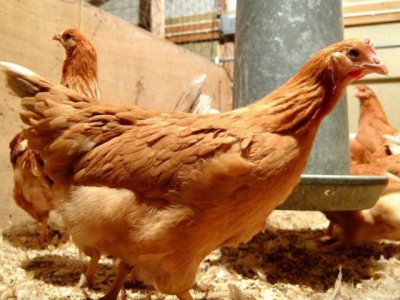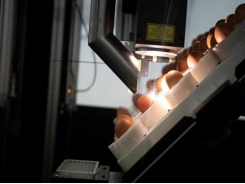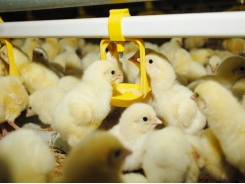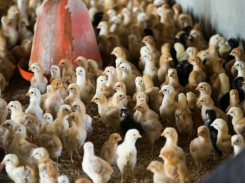Modified hens could produce medical proteins in eggs

New method called more efficient, cost effective than previous systems for producing drugs from modified goats, rabbits and chickens.
Chickens that are genetically modified to produce human proteins in their eggs can offer a cost-effective method of producing certain types of drugs, according to research conducted by The Roslin Institute at the University of Edinburgh in Scotland.
The study, which initially focused on producing high-quality proteins for use in scientific research, found that the drugs work at least as well as the same proteins produced using existing methods, the announcement from the University of Edinburgh said.
High quantities of the proteins can be recovered from each egg using a simple purification system, and there are no adverse effects on the chickens themselves, which lay eggs as normal, the researchers said.
The researchers explained that the findings provide sound evidence for using chickens as a cheap method of producing high-quality drugs for use in research studies and, potentially one day, in patients.
Eggs are already used to grow viruses that are used as vaccines. However, this new approach is different because the therapeutic proteins are encoded in the chicken's DNA and produced as part of the egg white.
The Roslin team first focused on two proteins that are essential to the immune system and have therapeutic potential: a human protein called IFNalpha2a, which has powerful antiviral and anti-cancer effects, and the human and pig versions of a protein called macrophage-CSF, which is being developed as a therapy that stimulates damaged tissues to repair themselves.
Just three eggs were enough to produce a clinically relevant dose of the drug, the researchers said. As chickens can lay up to 300 eggs per year, the researchers noted that their approach could be more cost-effective than other production methods for some important drugs.
The researchers added that they haven't produced medicines for use in patients yet, but the study offers proof-of-principle that the system is feasible and could easily be adapted to produce other therapeutic proteins.
"We are not yet producing medicines for people, but this study shows that chickens are commercially viable for producing proteins suitable for drug discovery studies and other applications in biotechnology," Roslin professor Helen Sang said.
According to the university, scientists at other institutions have previously shown that genetically modified goats, rabbits and chickens can be used to produce protein therapies in their milk or eggs. The Roslin researchers said their new approach is more efficient, produces better yields and is more cost effective than these previous attempts.
The study was carried out at the University of Edinburgh's Roslin Institute and Roslin Technologies, a company set up to commercialize research at The Roslin Institute.
Dr. Lissa Herron, head of the Avian Biopharming Business Unit at Roslin Technologies, said, "We are excited to develop this technology to its full potential, not just for human therapeutics in the future but also in the fields of research and animal health."
The research is published in BMC Biotechnology. The Roslin Institute receives strategic funding from the U.K.'s Biotechnology & Biological Sciences Research Council (BBSRC).
Dr. Ceri Lyn-Adams, BBSRC head of science strategy, bioscience for health, noted, "These recent findings provide a promising proof of concept for future drug discovery and potential for developing more economical protein-based drugs."
Source: University of Edinburgh, which is solely responsible for the information provided and is wholly owned by the source. Informa Business Media and all its subsidiaries are not responsible for any of the content contained in this information asset.
Có thể bạn quan tâm
Phần mềm

Phối trộn thức ăn chăn nuôi

Pha dung dịch thủy canh

Định mức cho tôm ăn

Phối trộn phân bón NPK

Xác định tỷ lệ tôm sống

Chuyển đổi đơn vị phân bón

Xác định công suất sục khí

Chuyển đổi đơn vị tôm

Tính diện tích nhà kính

Tính thể tích ao hồ




 Eubiotic feed additive may ease necrotic enteritis challenge…
Eubiotic feed additive may ease necrotic enteritis challenge…  Betaine additives may boost gut health for young…
Betaine additives may boost gut health for young…